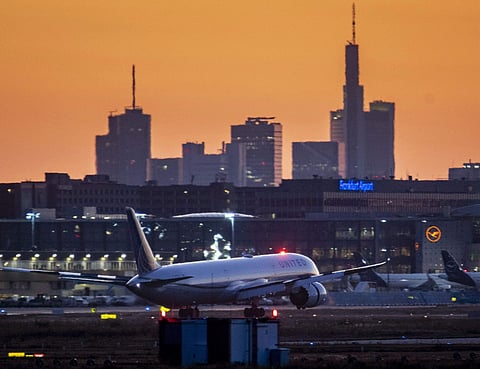

Planning to study in Germany? Be a little extra careful with your documents then. The German Embassy now mandates students seeking a visa to submit a certificate from the Academic Evaluation Centre (APS). And this might make applying for study visas a tad bit tough. What is the APS and, more importantly, will it affect the students' aspirations of moving to Germany? EdexLive finds out what advice experts Ankur Dhawan, President, upGrad Abroad, and Amit Singh, Founder, UniScholarz, have.
The APS is an administrative move, explained the experts. The Centre will process students' academic documents and validate them with a certificate. The APS application process started on October 1 and the student visa slots will open from November 1. With a steady rise in the number of Indian students applying for courses in Germany, experts opine that the move will be beneficial in the long run.
Faster visas
"Implementing the Academic Evaluation process by APS will ensure that only deserving candidates with genuine degrees and documents get admission and visa. Applicants or consultants who follow malpractices will be discouraged," says Ankur. "With only genuine cases coming to the embassy, the process will be more streamlined, with visas getting approved in shorter durations and more applicants processed," he adds.
At the same time, Amit admits that the APS proves to be a new administrative hurdle. "However, we can be hopeful that the long-term implications of this change will be a net positive — cutting down on delays, bolstering the authenticity of students’ academic achievements and making it easier for German universities to accept Indian students to their courses," he says.
How will applications be processed?
"At its most basic, the APS certificate is a background check into a student’s academic credentials," Amit adds. "The APS belongs to the Science Section of the German Embassy. It will first look into an applicant's identity via an Aadhaar linked to a mobile number and passport," explains Ankur. "In terms of academic evaluation, it would look at high school grade sheets and bachelor's or master's degrees or diplomas a student holds," he says.
"Once the application is printed and signed, the applicant will attach print copies of all the academic credentials stated along with an updated passport picture and ID and send all the documents to APS," Amit adds. After the genuineness of the documents is established, the applicant will receive the APS certificate. The certificate will be delivered to their house address via courier, mentions the upGrad Abroad President.
In case of any clarifications, APS can be contacted by email at info@aps-india.de. The APS centre is open (9 am – 12 pm) Monday-Friday for document drop-offs, he informs further. The APS process takes three to four weeks, as per the information shared by the body, Ankur says. "However, it is not yet clear what will be the process of evaluating the documents. If APS contacts the higher education institutions who have issued these certificates, the processing time could vary depending on how promptly the universities can reply to APS requests," he adds.
Why was APS introduced?
"As mentioned by the German ambassador, this move is primarily initiated as up to 15% of the applications they receive have fraudulent academic documents and lead to, at times, genuine students being rejected," informs Ankur. Meanwhile, Amit points out the "huge influx" of Indian students going overseas for their education as the "most obvious" reason for APS certification requirement.
Is Germany a popular education destination?
Ankur says that the number of Indian students travelling to Germany for education has increased three-fold in the past seven years and it continues to grow every year. Amit adds that the German Academic Exchange Service (DAAD) revealed the number of Indian students who went to Germany in 2021-22 is 33,753. This, Ankur says, is an 18 per cent jump from last year, when there were 28,542 Indian students in Germany.
Will APS affect this number?
The experts say no. While Ankur says that more than 3,000 students have lined up for Germany in the 2022-23 academic year, Amit states, "Students and parents spend months planning and dreaming of going overseas and are usually quite well-prepared for such administrative requirements. Furthermore, if the COVID-19 pandemic could not halt this rise in student interest, an APS certification is unlikely to do so."
